
Lawsuits, real-life tragedy and lost magic: exploring the ill-fated reunion of one of Hollywood’s most dynamic pairings
On paper it seemed like the perfect film for a sequel, at least to audiences clamouring for the return of one of Hollywood’s most magical pairings. Behind the scenes it was an entirely different story. In fact, Kathleen Turner wanted no part of the follow-up to 1984’s surprise smash Romancing the Stone. Nor did co-star and producer Michael Douglas. 20th Century Fox, who had experienced something of a commercial nadir back in ’84, had other ideas. Not only did they want a sequel to their only hit of the year, a humble, self-aware Indiana Jones knock-off that surprised everyone by raking in a whopping $86,572,238 worldwide, they wanted it quickly, exercising an option in the contracts of their leads that forced them to go against their creative judgement and reunite as reluctant antihero Jack T. Colton and idealistic romance novelist Joan Wilder. Turner even tried to quit during production, only to be threatened with a $25,000,000 lawsuit. In the end, she had no choice but to grin and bear it.
In a promotional interview with Bobbie Wygant, a painfully disingenuous Turner toed the corporate line, claiming, “I’m very happy with [The Jewel of the Nile]. I really am. I think, Michael Douglas and my primary concern in doing a sequel to ‘Romancing’, in doing Jewel of the Nile, was, you know, not to disappoint anybody. Because you come back with a lot of expectations, and a lot of people seem to like Joan Wilder, and seem to like Jack Colton, and we wanted to keep the same spirit and the same kind of humour, and I think that we did.”
In a 2018 interview with Vulture, having long-since fulfilled her contractual obligations, Turner would tell a very different story. “I had signed a contract to do a sequel [to Romancing the Stone] but the script for [The Jewel of the Nile] was terrible. What had happened was that Romancing was so successful that Diane [Thomas], who wrote the original script, evidently asked Michael for what he felt was a ridiculous sum to work on the sequel. So instead, he went with [Mark Rosenthal and Lawrence Konner] and what they came up with was terrible, formulaic, sentimental… [Michael Douglas] said, ‘What would it take for you to do this film?’ I wanted Diane back, or at least to give input. And Michael did go to her for some alterations. But ultimately I read the script on a plane to Morocco, where the film was shooting, and I was furious. It didn’t have what Michael said it’d have. When I got to the hotel in Fez, Michael and I sat down on the floor with three versions of the script. We were trading pages to get a script that was acceptable to both of us.” Tragically, Diane Thomas would die in a car crash six weeks before the release of The Jewel of the Nile. Three production crew members were also killed in a plane crash while scouting for locations in Morocco for a film that seemed cursed from the very outset.
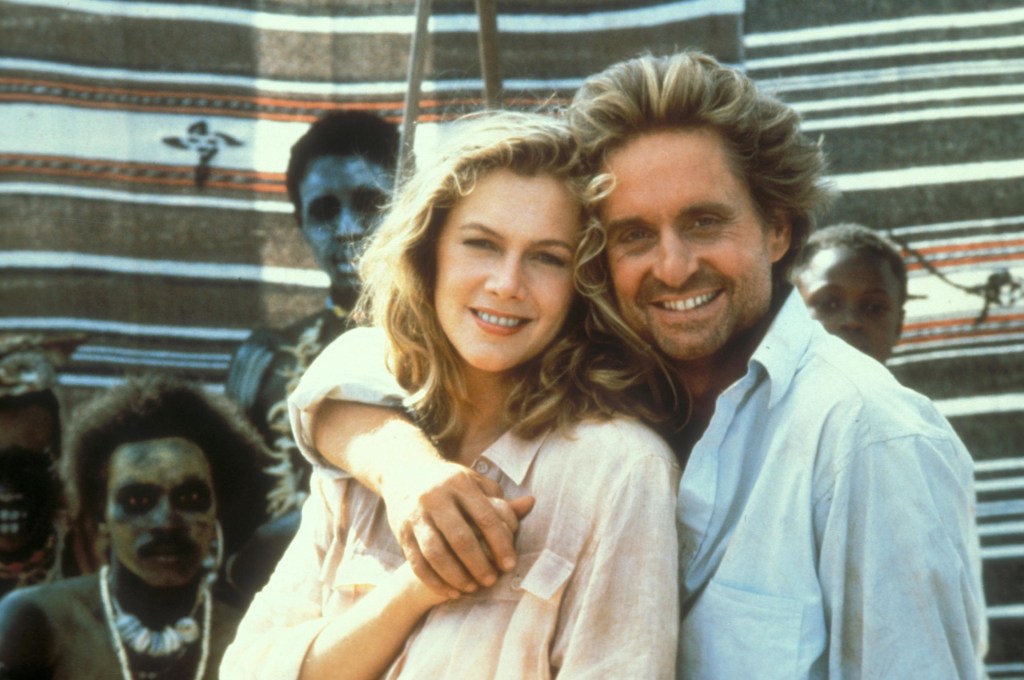
Despite her public subterfuge, Turner and Douglas share an effortless onscreen chemistry that mostly transcends the movie’s creative issues, but there’s something lacking. Unlike certain cast members, Romancing the Stone director Robert Zemeckis was not obligated to return for the sequel, his deft hand when dealing with adventure comedy sorely missed, a fact all but confirmed by the director’s next picture, the Spielberg-backed, pop culture phenomenon Back to the Future. Directing duties instead went to Lewis Teague, a filmmaker best known for Stephen King adaptations Cujo and Cat’s Eye. Teague had proven himself a steady, if unspectacular hand, something that would become even more apparent in what was new territory for him. The results are competent but lack the spark of Zemeckis’ outing. Teague delivers set-pieces that are bigger, louder, more lavish, but at times events become just a little ponderous, and you can’t help but feel that the film’s a tad too long, particularly during a less-than-action-packed finale that’s almost like a belated re-match to the second act’s main event.
Don’t be ridiculous! Jack would never die without telling me.
Joan Wilder
There are still some fantastic scenes to grapple with, something future Die Hard cinematographer Jan De Bont has more than a hand in. A set-piece on top of a moving train, though somewhat formulaic, provides the perfect platform for our duo’s onscreen sparkle, and the destruction of a town at the hands of Douglas and a jet fighter plane must have cost a pretty penny, but the action elements take precedence at the expense of character development, the very thing that made the original instalment so special. Romancing the Stone felt rough and ready, almost organic despite its derivative aspirations. The characters kind of fell into their adventure (quite literally during the endlessly re-watchable mudslide scene), but in the sequel they’re pushed quickly from one scrape to the next. Instead of those moments being determined by the cast’s developing relationships, they’re lacking any real purpose. We get lots of bang for our buck, but it’s difficult to emotionally invest in the characters. There’s no real rhyme or reason.
Another cast member forced to return for contractual reasons was Danny DeVito, and the bumbling Ralph’s abrupt and seemingly aimless reappearance seems… well, forced. Ralph catches up with Douglas’ Colton on the French Riviera, appearing in a dumpster with a loaded pistol after returning to claim his share of the white-suited Lothario’s riches (you can certainly tell Miami Vice was in vogue in 1985 based on Douglas’ wardrobe). DeVito, who can play the lovable cartoon crook in his sleep, puts in a typically effortless shift, but his character deserved much more story-wise. Apparently, all Ralph’s been able to think of while rotting away in the rat-infested prisons of Colombia is exacting revenge on Colton. Jack, who’s been living his dream of sailing around the world with his star-crossed companion, sees his luxury yacht go up in flames after Joan senselessly leaves for Africa to work for a clearly sinister stranger. Not even an attempted assassination on Spiros Focás’ devilish dictator, Omar Khalifa, mere hours after Wilder accepts his offer, is enough to convince her that something is rotten in Denmark (has she not learnt anything from her past adventures?). Basically, the film does everything it can, as quickly as it can, to press the reset button, and therein lies the problem.

There’s a reason why few sequels live up to their predecessors, especially when it comes to films that are very much relationship driven. The Lethal Weapon series is a prime example. The sequels to those movies were on the whole very much welcome, the relationships developing in ways that were mostly satisfying, but those original relationship arcs, the reason we fell in love with those characters in the first place, can never be replicated. The Riggs and Murtaugh axis no doubt grew richer over time, particularly during Lethal Weapon 2‘s inspired bomb-on-the-toilet fiasco, which is arguably the finest blend of action, comedy and drama I’ve experienced in a single scene, but once strung-out bad ass Riggs becomes a domesticated animal, the character loses some of his spark, Murtaugh his main purpose. Familiarity, no matter how warm and comfortable and reassuring, can never replace the exhilaration of a brand new adventure.
The same applies to The Jewel of the Nile. Romancing the Stone thrived on the unlikely union of Turner’s dowdy idealist and Douglas’ dashing, reluctant hero. In the sequel, the once-lovelorn Wilder is bored with romance after months of repetitive paradise, a suitably ironic development for a relationship forged on the rocky cliffs of 80s cynicism. This is beautifully foreshadowed during the movie’s fictional prologue. Romancing the Stone began with a peek into romance novelist Wilder’s imagination, a wistful realm where a selfless and chivalrous cowboy fulfilled not only the quixotic lust of her readers, but her own pent-up desires for a fairy tale romance. In The Jewel of the Nile‘s prologue, Colton has become that chivalrous saviour, a swashbuckling swordsman fighting off a pack of mangy pirates thirsting for Wilder’s teeming sensuality. The problem is, the lifeboat that promises freedom only has room for one of them. Douglas’ character offers that space to his damsel, but when she refuses, offering it to him in return, he doesn’t need much convincing and flees on his lonesome. Wilder has learned a thing or two about love since we last saw her.
The movie is transparent about the sting of complacency during those opening moments, a reflection of the pitfalls of sequelitis, but the screenplay’s literal handling of its characters is not so rewarding. In fact, other than a horribly staged marriage presided over by Billy Ocean’s stilted pop accompaniment ‘When the Going Gets Tough, the Tough Get Going’, there’s very little to chew on when it comes to our pair’s less-than-ideal, though ultimately endearing romance. It turns out that fated love isn’t for Wilder after all, temporarily reigniting our pair’s sense of conflict, but we soon fall very comfortably into generic territory, our reluctant hero bowing to picture-perfect heroism after discovering that the jewel in question isn’t exactly what he had anticipated, something Wilder chooses to keep from him for fear that selfishness may once again leave her stranded. Much like Riggs, Colton has lost some of what made him so indelible, and when the title of the movie’s heavily promoted theme song is shoehorned into the screenplay, not once, but twice, you know you’re in trouble creatively.
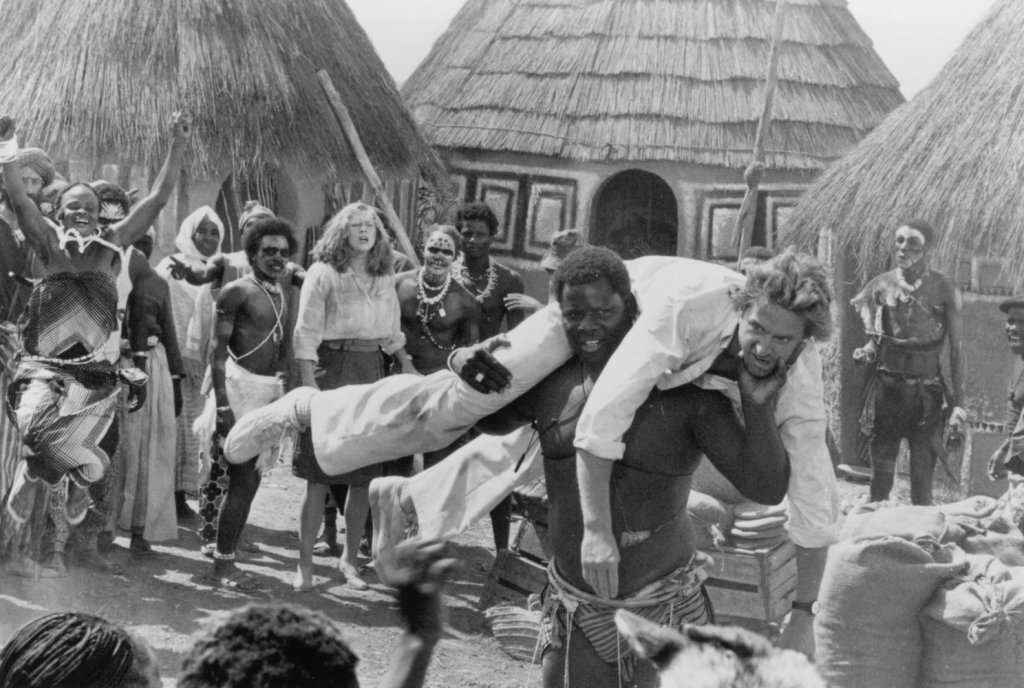
There are a couple of welcome character additions, even if those who return, like Wilder’s once endearingly sardonic agent, Gloria Horne (Holland Taylor), are mostly filler. Focás is effortlessly devilish as brutal Arab autocrat Omar, even if the screenplay makes a fool of him for the most part (there is hardly a moment when you genuinely fear for our protagonists). Omar is even stupid enough to bury a section of his own army under mountains of rubble after a misguided bazooka blast. If it weren’t for the fact that DeVito’s character takes something of a comic relief nosedive, Omar would have been vying for the role of joker in the pack. Naturally, DeVito is still as brilliant as ever. The screenplay may treat him like a stooge on occasion (and not in a good way), but his bumbling, hyperactive cynicism stops events from prematurely descending into the kind of sentimentality that ultimately mars the film.
The movie’s real gem comes in the form of Avner Eisenberg’s Al-Julhara, a spiritual prophet imprisoned by Omar in his pursuit of Draconian power. Dubbed ‘Avner the Eccentric’, Eisenberg is a real-life American vaudeville performer, clown, mime, juggler and sleight of hand magician dubbed, “A clown for the thinking man and the most exacting child,” by film critic John Simon, and he was absolutely made for the screen, projecting an unaffected magnetism that would charm even the most deep-rooted curmudgeon. Eisenberg plays the Christ figure to Omar’s black-eyed serpent, proving a breath of fresh air in a movie steeped in lazy stereotypes. The film is horribly bromidic at times, once again taking a direct cue from the Indiana Jones series, this time 1984’s Indiana Jones and the Temple of Doom. A dark deviation from 1981’s Raiders of the Lost Ark, ‘Temple of Doom’ would come under fire for its deeply offensive depiction of Indian culture, portraying natives as either unconscionable savages with a taste for monkey brains or helpless peasants at the mercy of a white saviour. The Jewel of the Nile is much less sinister tonally, but the screaming Arab motif is done to death, the suggestion that an indigenous tribe could peacefully reside but a stone’s throw away from an autocratic Arab state pushing the realms of plausibility to derisory levels. But hey, this was the 80s.
[while surrounded by native Africans] Just keep smiling. Maybe they’ll think we’re with National Geographic.
Jack Colton
Despite the screenplay’s predictability and a plot that unfolds like a game of Risk at the mercy of an excitable Staffordshire Bull Terrier, there are some genuinely funny moments in The Jewel of the Nile, most of them derived from the story-within-a-story concept that lifted Romancing the Stone out of cheaply derivative territory into the acceptable realms of self-knowing. Admittedly, Omar’s reason for seeking out Ms. Wilder, as ludicrous as it may seem, is utterly self-aware. Omar requires Wilder’s idealistic ability to make unrealistic heroes out of characters, just the kind of fantasy image management a black-hearted fraud needs to cleanse his public image in the eyes of the world. It’s the cartoon equivalent of 21st century sportswashing. Omar is such a fan of Wilder that he’s designed his home and army uniforms to resemble those featured in one of her novels. He even plots an elaborate James Bond-style death based on a scene from one of her books. When she attempts to escape her glorified prison at Omar’s castle, she imitates the actions of one of her heroines by chipping away at the mortar holding her window bars in place, resulting in one of the film’s best lines.

Ultimately, The Jewel of the Nile is a bit of a mess. As a slice of mindless entertainment, it’s worth revisiting for the action sequences alone, and there’s always fun to be had where Turner, Douglas and DeVito are involved, a fact proven by their return to form in 1990’s delicious black comedy outing The War of the Roses, a film the three actors were all on board with that, despite not being a direct follow-up, was a sequel in spirit, the one that fans of the first film truly deserved. If Romancing the Stone was our unforgettable fling with adventure, The War of the Roses a cutely cynical commentary on the hazards of marital complacency (one that seemed like a natural progression for two characters who began as polar opposites), then The Jewel of the Nile represents that familiar, comfortable period, the kind that we’re passively content with until routine and stagnation inevitably poison the waters.
The Jewel of the Nile‘s picture book ending is so contrived and sentimental that it goes against the very ethos of the original movie. When it comes to cynical comedy, getting exactly what we want as an audience is typically the death knell. We want to get there in the end, but back-and-forth conflict is vital. There’s a little of that conflict in The Jewel of the Nile, but not nearly enough. Yes, we get our picture book ending in Romancing the Stone too, but it feels earned, right down to the ‘will they or won’t they’ false ending. We know what’s coming, but we invest in Colton’s roguish contempt to the extent that it feels justified. The Jewel of the Nile plays out like a swansong that doesn’t feel earned. We don’t get the ending that fans of the characters want, we get the generic studio finale, the kind you have to believe wouldn’t have existed had Douglas and Fox paid Diane Thomas, which was what she deserved for giving them Romancing the Stone. If they had, she may very well have been alive today.
Douglas, who had gifted Thomas the Porsche Carrera that her inebriated partner had been driving when the pair skidded off a rain-soaked highway and smashed into a power pole just south of Coastline Drive, Los Angeles, would say of the novice writer’s one and only screenplay, “It just had a spontaneity about the writing. She was not cautious. The script had a wonderful spirit about it… There was a total lack of fear to the writing.”
The Jewel of the Nile could certainly use some of that fearlessness.
Director: Lewis Teague
Screenplay: Mark Rosenthal &
Lawrence Konner
Music: Jack Nitzsche
Cinematography: Jan de Bont
Editing: Peter Boita &
Michael Ellis



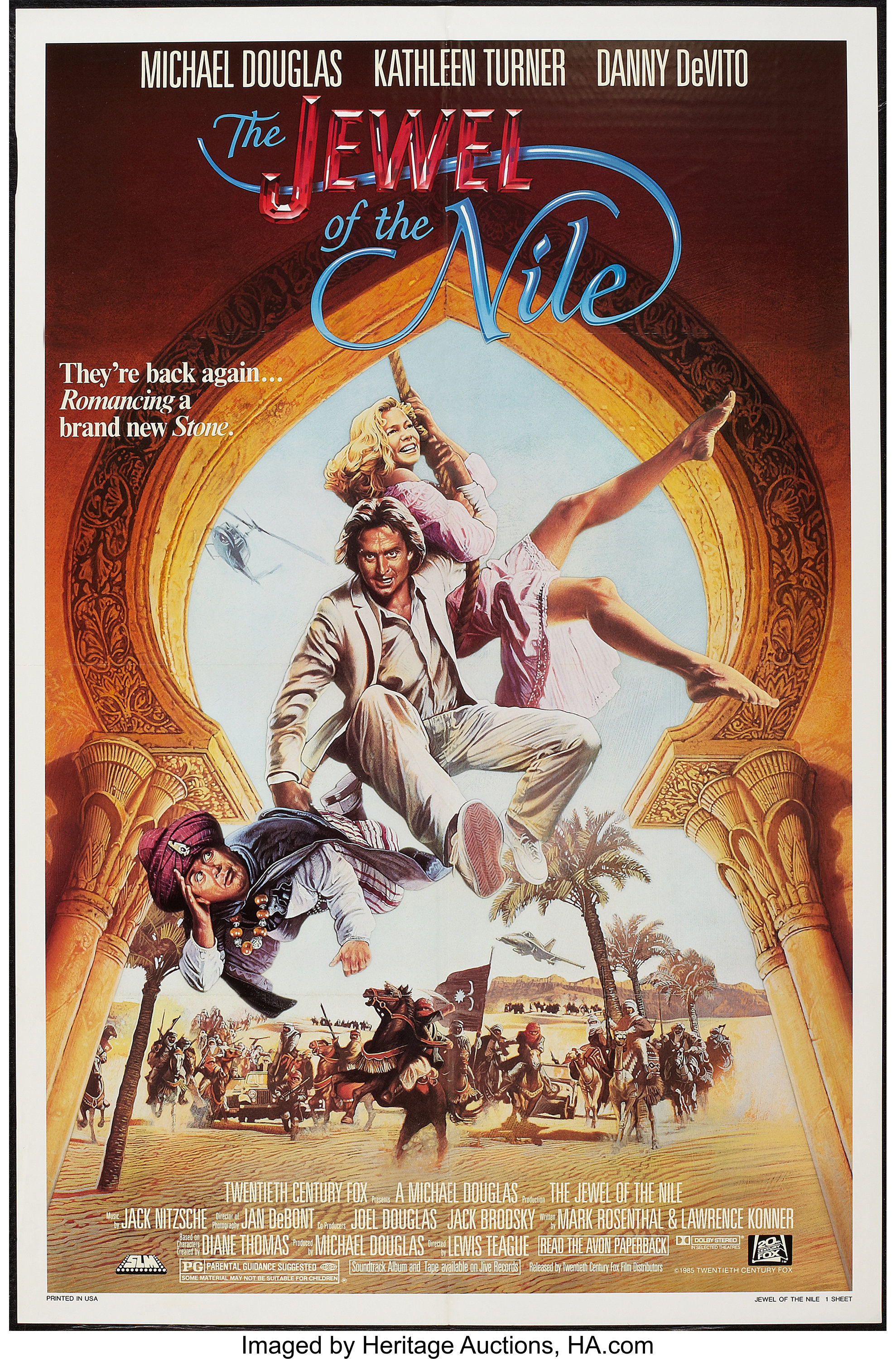
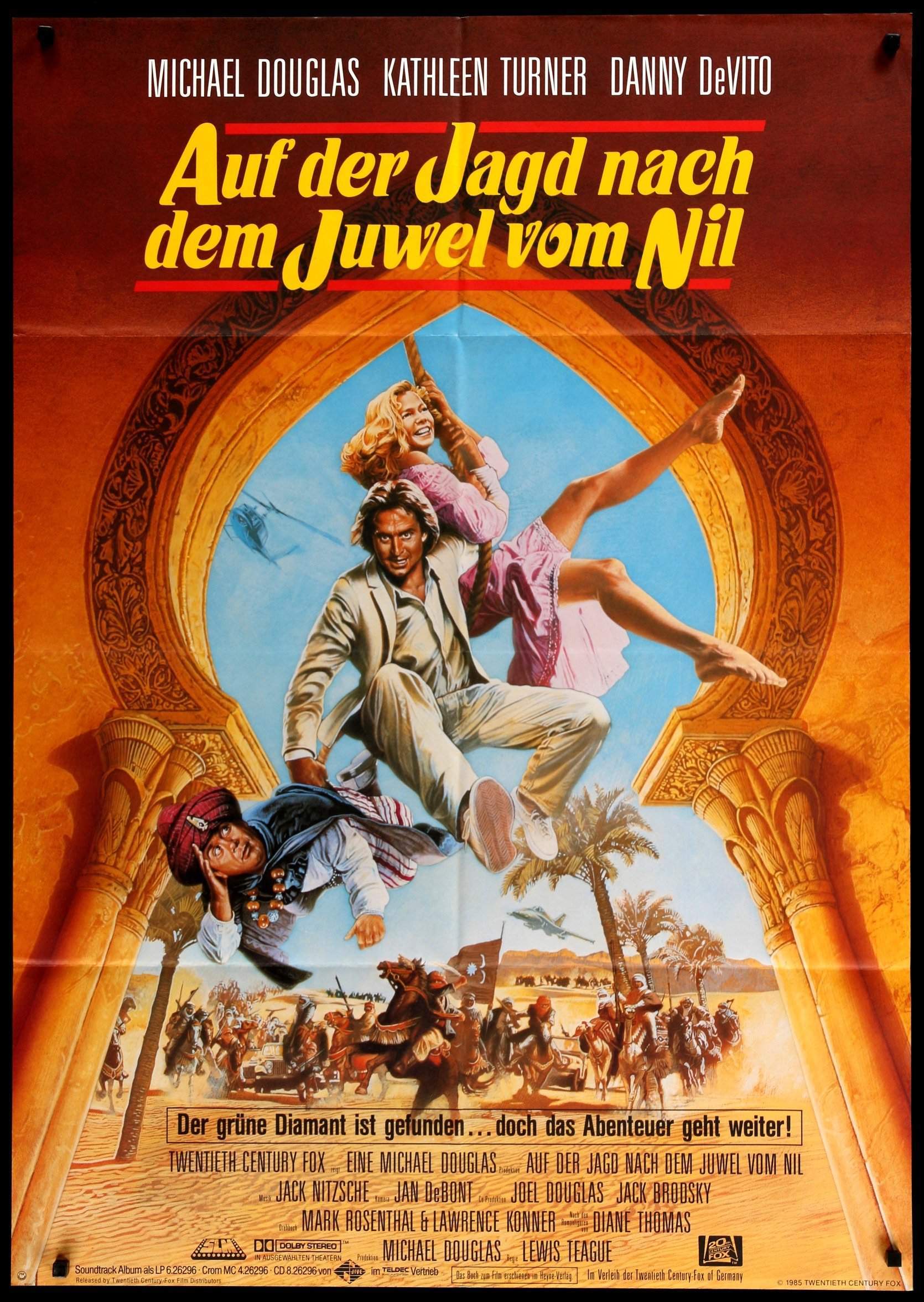




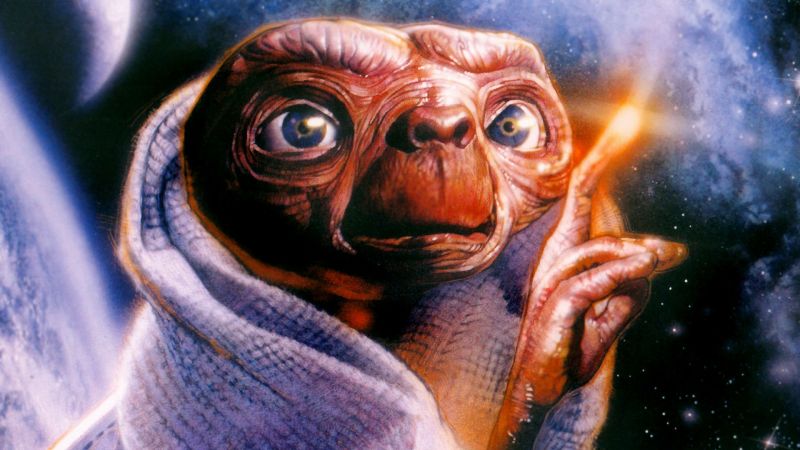
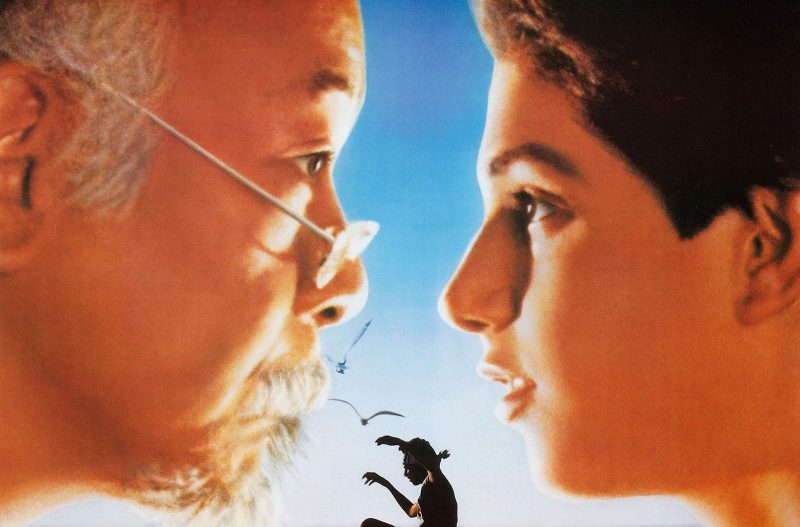

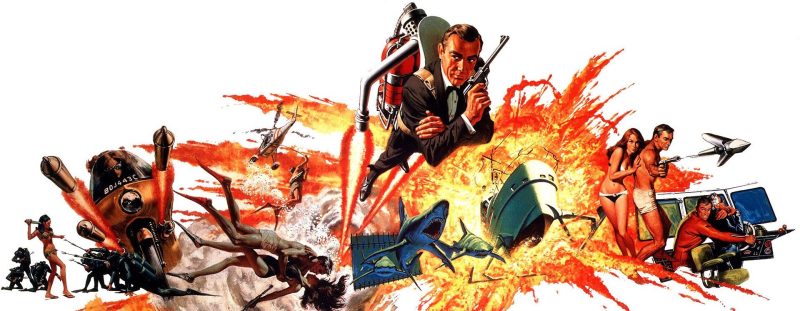

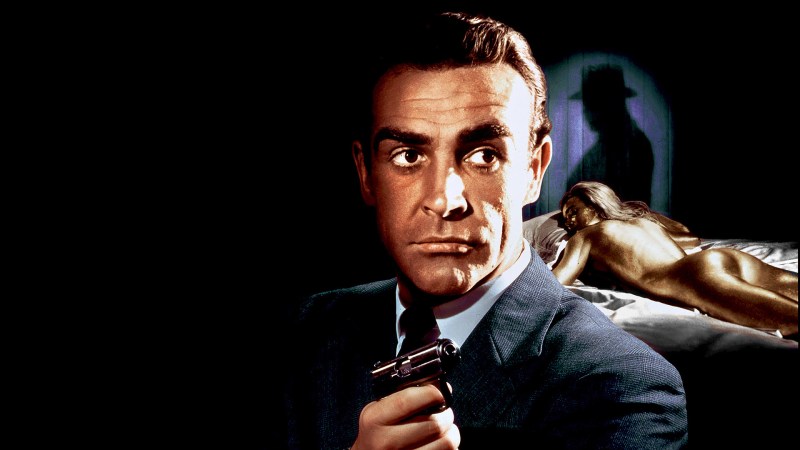













I enjoyed the essay, a lot of things said are basically how I feel about “The Jewel of the Nile”, although I do like the Billy Ocean song (I also like “Suddenly”, and “Get Out of My Dreams, Get Into My Car” from the Ocean); to me it’s a pretty lukewarm film, completely lacking the fun factor and sizzle that “Romancing the Stone” brought to the table. I think it’s watchable and has its moments, but ultimately forgettable and not very inspired.
Oh, but the “Miami Vice”-inspired wardrobe I’m all for; I love pastels:-).
LikeLike
Thanks, Eillio
Glad you enjoyed the essay. It is lacking the fun factor and the sizzle. Feels like a bit of a grind for all involved; a competent but uninspired one. For the record, my favourite Billy Ocean track is Caribbean Queen (No More Love on the Run). Funky little guitar lick and some slick production. Suddenly is a great track too. ‘The Ocean’ runs deep. 🙂
LikeLiked by 1 person
Oh yeah, “Caribbean Queen” is pretty great; I added it to my YouTube playlist #15, and it’s the extended version. Also, when I used to play “Scarface: The World is Yours” on the Playstation 2 it was on that game’s soundtrack (blasting away at screaming psychos with chainsaws with that song playing was pretty interesting to me:-). Another one of those those 1980’s songs that has what I call “the crystalline ting”, which I love. Great sax solo on that tune as well, do you agree?
LikeLike
I concluded that there is actually one way Jewel of the Nile improves upon its predecessor, believe it or not. I was hoping you’d make a passing reference to it. I’m not a fan of that weird random calypso beat that plagues many 80s action films, RTS included (Commando being the most egregious example from this era). But I am 100% here for all things synth, and the synth score to this is sweeping and romantic and lends an epic feel that frankly elevate the scenes past Sunday matinee fare. It constantly teases a better version of this film that takes far more care with that precious Joan and Jack relationship.
LikeLiked by 1 person